5 Natural Superfoods to Fight Depression, that Will Surprise You
Depression is a psychosomatic disorder, characterized by sadness or low mood that persists throughout the whole day. There is also considerable loss of interest and pleasure in previously enjoyable activities. Find out about 5 superfoods to fight it.
Depression is a psychosomatic disorder, characterized by sadness or low mood that persists throughout the whole day. There is also considerable loss of interest and pleasure in previously enjoyable activities. Sadness of mood is usually associated with pessimism, which can result in three common types of depressive ideas: Hopelessness, Helplessness and Worthlessness.
The word ‘depression’ has its root in the Latin term deprimere, which means to press down. Depression is often associated with alterations in cognition, metabolism, endocrine functions and appetite.
Other symptoms include:
- Self-reproach and guilt feelings
- Difficulty in thinking and slowed thinking
- Difficulty in concentration
- Indecisiveness
- Subjective poor memory
- Lack of initiative and energy
- Ruminations (repetitive, intrusive thoughts) with pessimistic ideas
- Thoughts of death and preoccupation with death
- Insomnia
- Loss of weight
- Sudden unexplained weight loss or weight gain
Depression is becoming an increasingly common illness. The burden of this disorder on the society is considerably large. It was estimated that 322 million people, all over the world suffered from the disorder in 2015.
Causes of depression:
It is multi-factorial in origin and may be caused by the following reasons:
1. Genetics
2. Brain structure and functioning
3. Deficiency of monoamine neurotransmitters like dopamine, serotonin or norepinephrine.
4. Stressful life events
5. Substance use
6. Drug use
7. Some somatic illnesses like hypothyroidism, Parkinson’s disease, Brain tumor etc…
Conventional Oral therapy:
The conventional management of depression includes the administration of oral anti-depressant drugs and psychotherapy. Anti-depressants however come with a plethora of side effects leading to a poorer quality of life. These may include nausea, weight gain, insomnia, fatigue and drowsiness.
5 Natural Superfoods:
A common adage in naturopathy, which was said to be quoted by 5th century Greek physician, Hippocrates, goes thus: “take food as thy medicine”. In keeping with this sentiment, an exploration of natural superfoods that can fight depression is validated. Some of these herbs have been known to man since time immemorial. Their use in the supportive management of depression can prove to be significantly useful.
1. Saffron
When you think of saffron, the first thing that comes to mind is of course, rich, creamy and wholesome food. You can almost feel its aroma wafting through the kitchen doors. Turns out, the world’s most expensive spice doesn’t just lift up your food but also lifts up your mood.
The scientific name for saffron is Crocus sativus. It is believed to have originated in Iran, and it now finds various culinary applications all over the world. Its characteristic aroma is due to the presence of about 150 phytochemicals and volatile compounds. These include zeaxanthin, lycopene and carotenoids which are powerful anti-oxidants and a compound called safranal. Its golden-yellow color is primarily due to a compound called crocin, its bitter taste is due to picrocrocin.
There has been a lot of research about the benefits of saffron in recent years. Studies have confirmed the medicinal properties of saffron as an antioxidant, anti-carcinogenic, memory enhancer, neuroprotective and cardio-protective.
A number of clinical trials have demonstrated that saffron possesses antidepressant properties similar to those of current antidepressant medications such as fluoxetine, imipramine and citalopram, but with fewer reported side effects.
One study found significant improvement in breast-feeding mothers suffering from minor post-partum depression, after the administration of saffron for 8 weeks. Another study conducted in Australia, revealed that the use of saffron at a dosage of 28 mg/day for 4 weeks had a significant impact on mood, stress and anxiety symptoms. However, the exact mechanisms of action are still not clearly established.
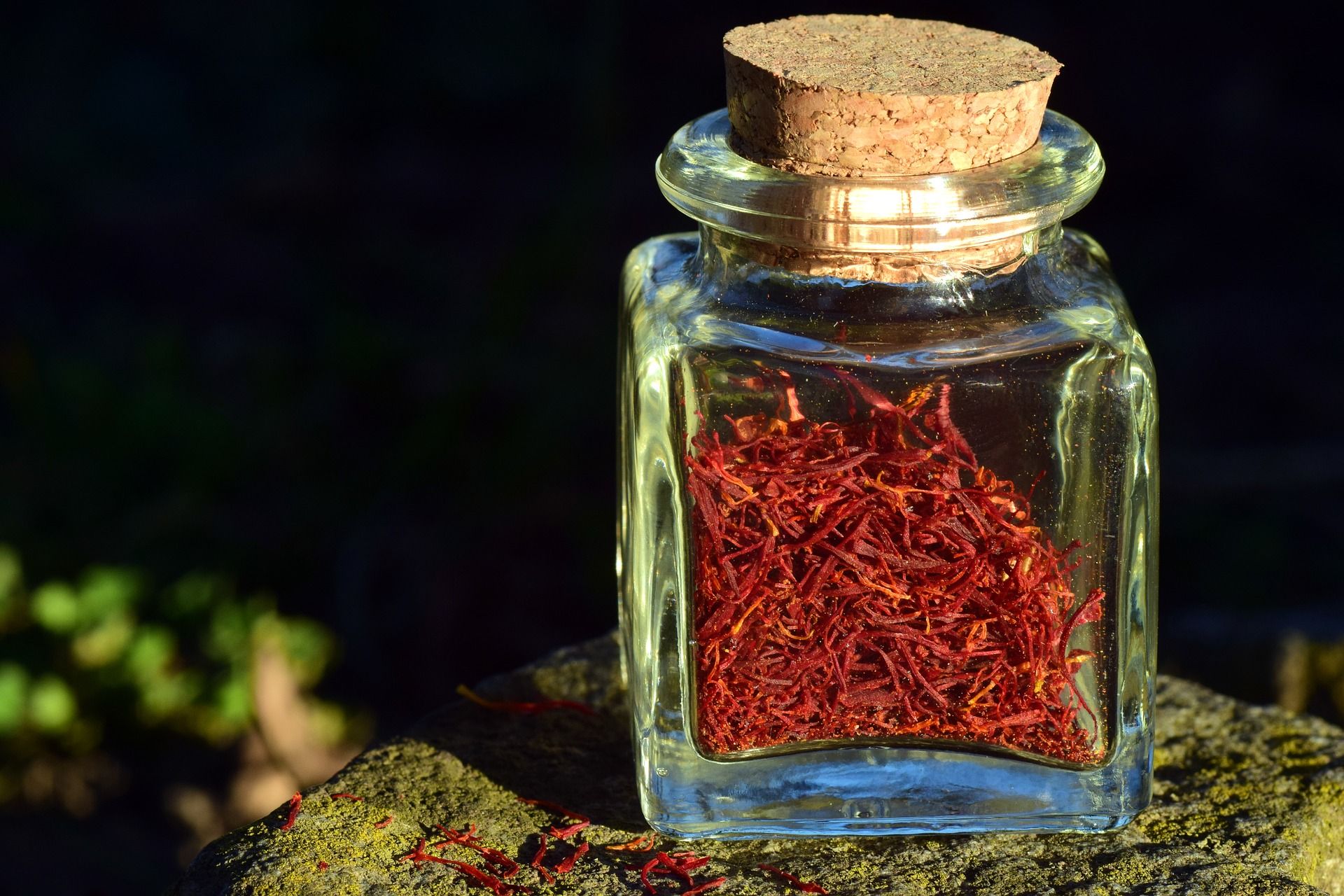
Usage:
Take a small glass of warm milk (50-100 ml), and add a few strands of saffron. Mix well and add organic jaggery or honey for taste if required. You can have a single dose at night before going to bed or take it in 2-3 divided doses throughout the day.
Alternatively, you may take saffron supplements that are available as capsules.
2. St John’s wort
St John’s wort or Hypericum perforatum is perineal herbaceous plant. It is considered a weed in some parts of the world though, its use as a herbal remedy for depression does have some scientific evidence.
A number studies concur with the fact that St John’s wort is safe, well-tolerated and does have significant anti-depressant effect.
The active components of this herb that have biological activity include hypericin, pseudohypericin, xanthones, monoterpenes, β-sitosterol, quercetin, and catechin. Among these, hypericin is identified as being the primary compound responsible for the herb’s anti-depressant activity.
It fights depression by acting similar to a class of anti-depressant drugs called MAO-inhibitors. The active components bind to certain receptors in the brain and reduce the action of the enzyme mono-amine oxidase which is responsible for removing norepinephrine, serotonin and dopamine. This increases the availability of these neurotransmitters or brain chemicals.
The primary advantage of St John’s wort over MAO-inhibitors is that its use not associated with the same dietary restrictions because its actions aren’t as potent as the drug. But the herb can only be effective in treatment of mild to moderate depression.
Side effects like nausea, allergic rash, fatigue, restlessness, and photosensitivity have been reported although these seem to be very rare. Studies have shown that the percentage of people who discontinued use due to adverse effects is as low as 1.1%.
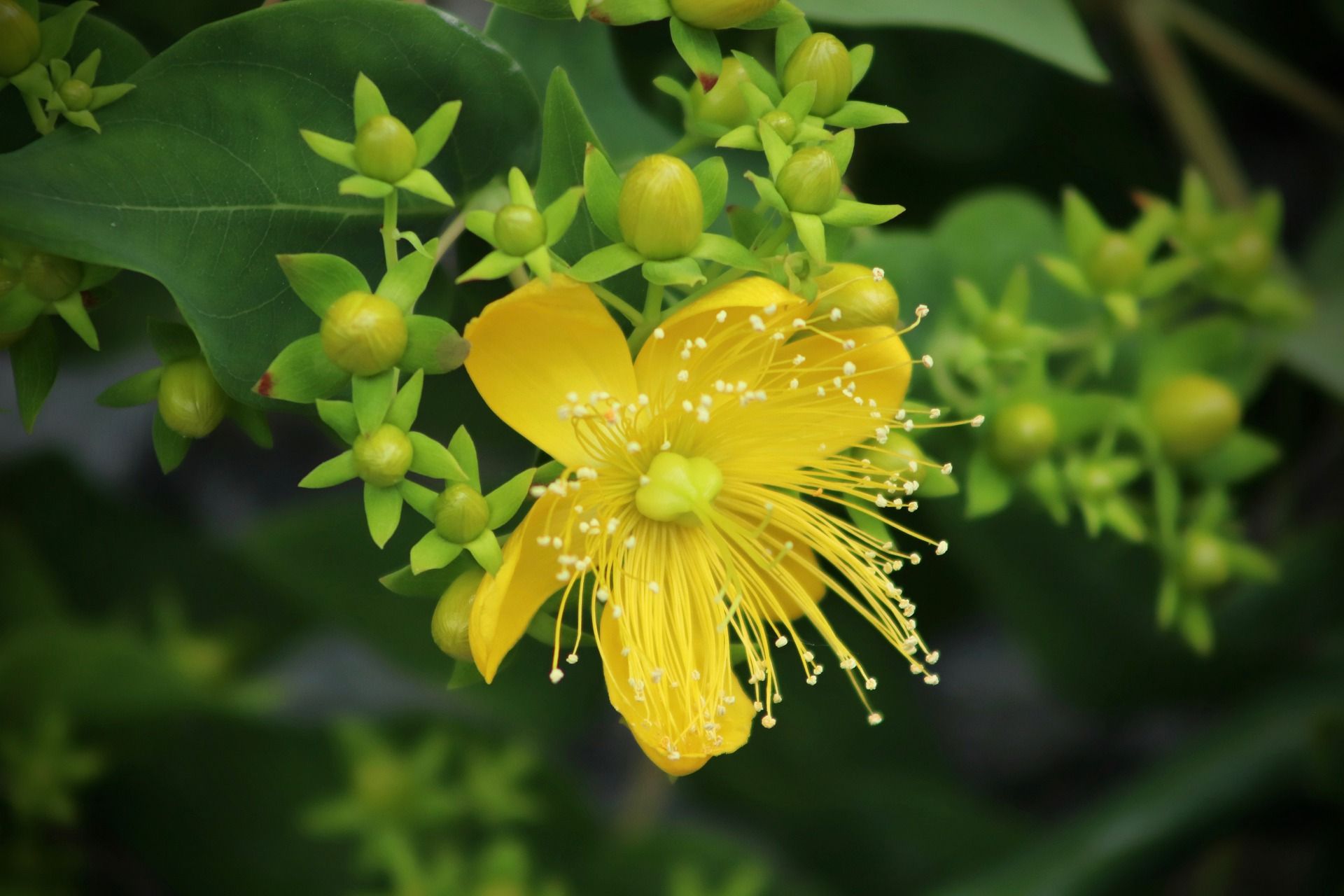
Usage:
The dried herb can be brewed as tea, and one cup of tea can be taken per day.
Alternatively, hypericin extracts are available as capsules.

3. Kapikacchu
The applications of Kapikacchu or Mucuna pruriens as a medicinal plant have been elaborated upon in the ancient science of Ayurveda. The word kapikacchu literally translates to plant that causes itching to monkeys. This plant is notorious for causing itching on contact, which occurs due to presence of a protein called as mucunain.
Kapikacchu is commonly called cowage or velvet bean. It is an annual climbing shrub which bears white, lavender or purple flowers.
It contains high levels of L-dopa which increases the levels of the neurotransmitter dopamine in the brain. In one study, the hydro-alcoholic extract of kapikacchu seeds was administered to rats for 21 days. Significant dopaminergic regulatory activity was observed which indicates that it may have positive implications in the treatment of depression.
High levels of dopamine are also associated with reduced stress and improved quality of sleep.
Mood enhancement and elevated alertness have been observed in human trials within one hour of consumption of kapikacchu powder.
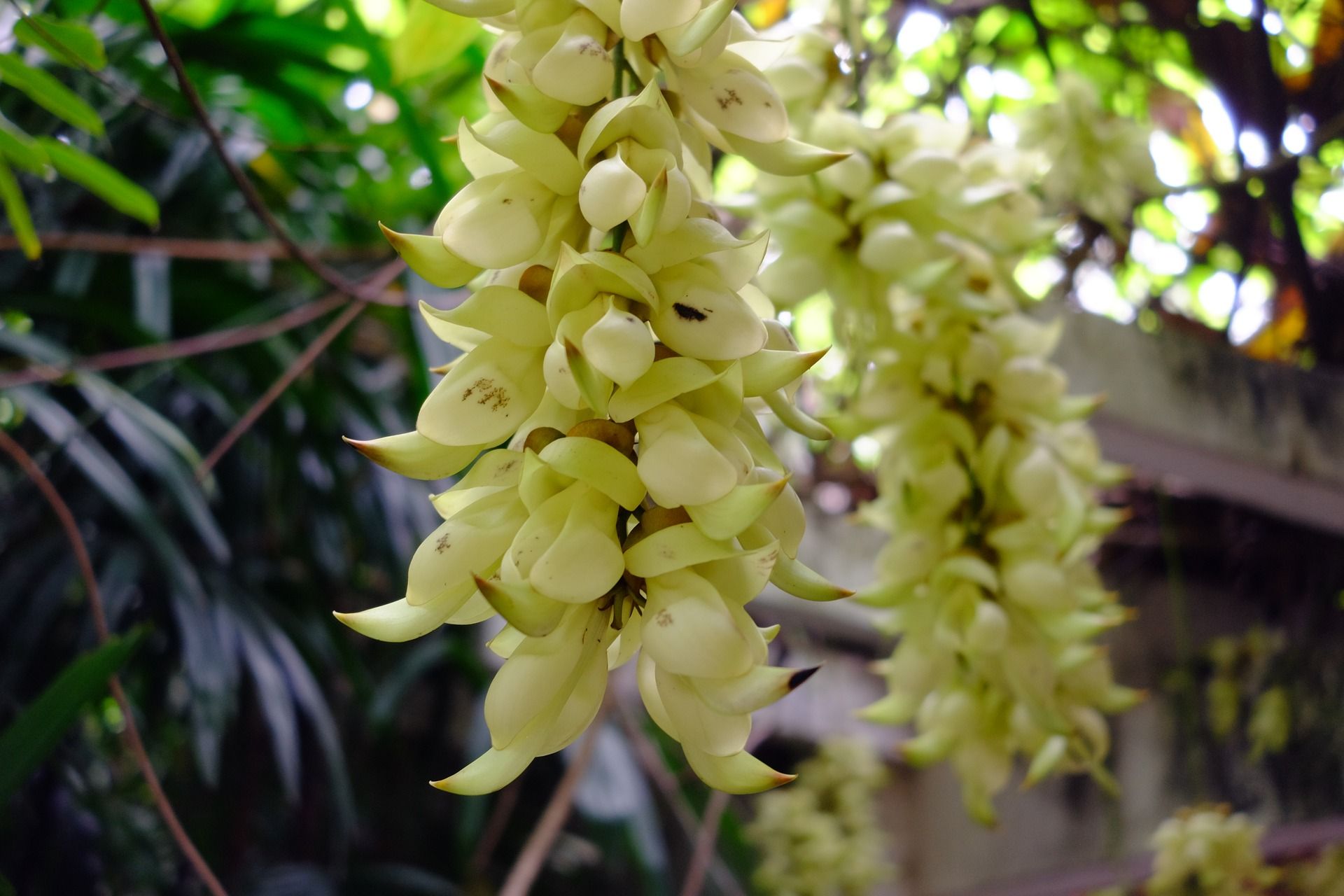
Usage:
Kapikacchu powder is an ayurvedic medication and must be taken under guidance of an Ayurveda physician.

4. Spinach
Spinach or Spinacia oleracea is a green leafy vegetable that has a number of nutritional benefits. It is a rich source of a number of vitamins and minerals. These include folate or vitamin B9.
Folate deficiency is a common occurrence in many psychiatric conditions including depression. Spinach is rich source of folate and can help fight depression.
It also contains the amino acid or protein building block called tryptophan. Tryptophan is a precursor molecule of serotonin, the happy hormone. Consumption of tryptophan rich food can boost the levels of serotonin in the body, thereby causing an elevation in mood.
Therefore, spinach has the dual benefit of increasing both folate and serotonin levels in patients suffering from depression. So, eat up your spinach to be as strong as Popeye the sailor man.
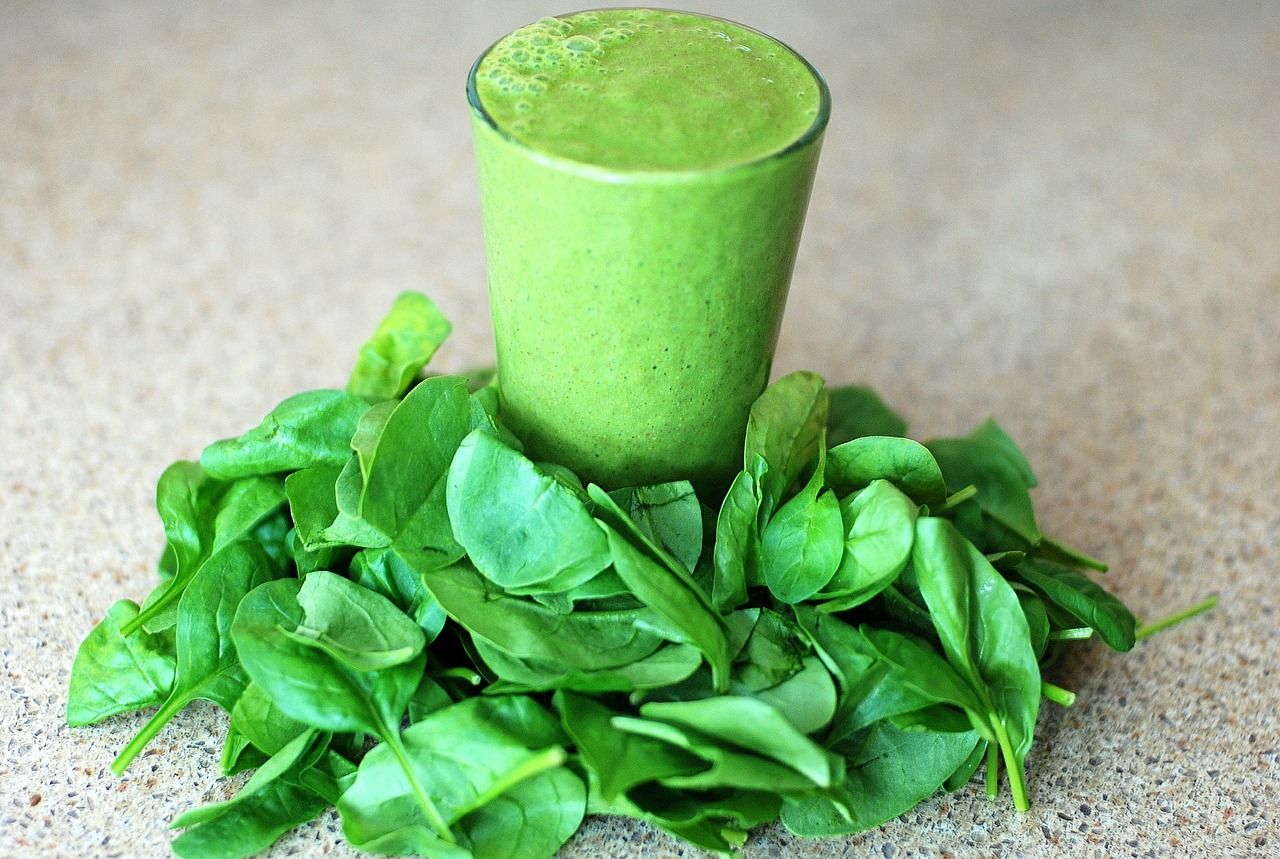
Usage:
Spinach is commonly used in multiple cuisines to make soups, rice preparations, dal, sabji, pasta, pizza, paratha etc…
Alternatively spinach powder can be taken.

5. Mushrooms
Mushrooms, commonly called “the meat of the vegetable world” are a type of fungi used extensively in cooking.
Wild mushrooms or organic mushrooms are the only natural plant-sources of vitamin D. The human body can convert a cholesterol precursor to vitamin D, in presence of sunlight. Mushrooms can also do the same. Therefore, wild mushrooms cultivated under sunlight are rich sources of vitamin D.
Researchers have found that patients suffering from depression often have low levels of vitamin D. However, the exact pathophysiology of low vitamin D levels leading to depression is an area of research yet to be explored.
A study published in The Lancet Psychiatry, explored the effects of a hallucinogenic compound derived from magic mushrooms on patients with treatment-resistant depression. Magic mushrooms have psychedelic effects on consumption, due to the presence of hallucinogens.
Researchers at Imperial College London extracted one such hallucinogen called psilocybin and studied its effects on 12 participants with treatment-resistant depression. Their findings indicate that it was safe and well-tolerated and showed significant continued improvement in 58% of the participants after 3 months.
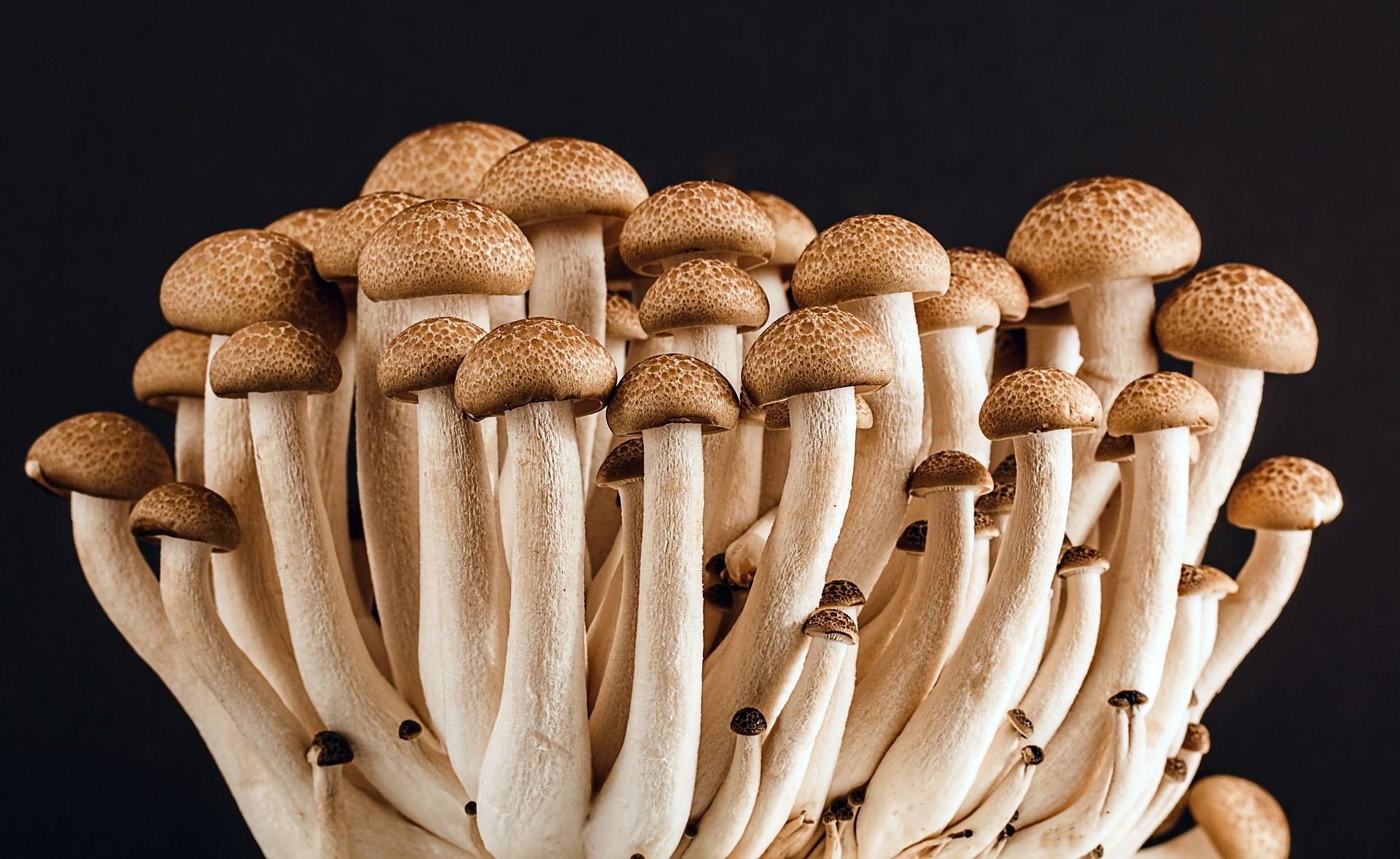
Usage:
Mushrooms are extensively used in many different cuisines. They can be added to soups, pasta, vegetable gravies, salads, pizzas, rice preparations etc…
Other Dietary Guidelines:
1. Junk food is definite NO
Avoid junk food, fast food and red meats. Also avoid alcohol consumption. Reduce consumption of bakery products and processed foods.
2. Healthy Snacking
Avoid frequent snacking and binge eating. Make healthier snack choices. When the cravings kick in, munch on dry fruits or sunflower seeds instead of chips or packed foods. Dry fruits are rich sources of omega 3 fatty acids and sunflower seeds contain selenium. Both of these nutrients are commonly found to be deficient in people suffering from depression. Fresh fruits, raw vegetables, lentil salads, millet salads are other healthy snacking options.
3. Identify Eating Patterns
Be mindful while you are eating. Identify your diet pattern. Record what you eat throughout the day in a diet chart. This will help you to keep a check on binge eating. Eat only when you are hungry and avoid eating out of habit. Aim for 2 or 3 meals in a day and make sure to have dinner 2-3 hours before going to bed.
Conclusion:
In conclusion, it is warranted to say that a few changes to your lifestyle can bring you marked changes to your mood. Even the longest journey must begin with the first step. So, without further ado start adopting a few small changes to your diet and progress to bigger changes when you are ready for them.
Include these 5 superfoods in your daily diet pattern to fight depression.
